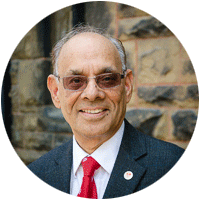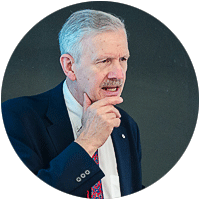Articles, lettres d’opinion, prix reçus, nominations à la Cour et embauches : un florilège de nouvelles touchant les membres de notre corps professoral.
Promotions, embauches, départs et visites
Dans les derniers mois, la Faculté a eu le plaisir d’annoncer qu’Angela Cambell et Evan Fox-Decent ont été promus au rang de professeur titulaire, tandis qu’Alana Klein et Vincent Forray ont été nommés professeurs agrégés.
Par ailleurs, Omar Farahat et Aaron Mills ont été recrutés comme professeurs adjoints. Ils commenceront respectivement en septembre 2017 et en septembre 2018. Nous sommes également heureux d’annoncer que le professeur John Burrows, de la Faculté de droit de l’Université de Victoria, sera parmi nous comme professeur invité pendant l’année 2017-2018.
Finalement, le professeur Frédéric Bachand a été nommé juge à la Cour supérieure du Québec, tandis le professeur Paul Miller quittera la Faculté cet été pour prendre le chemin de l’Université de Notre Dame aux États-Unis.
La professeure Vrinda Narain s’est mérité le prix de recherche Gonthier, tandis qu’en avril, le professeur Daniel Weinstock recevait le prix Taylor. Le professeur Hoi Kong s’est vu décerner le prix d’excellence académique de l’Association canadienne des professeurs de droit en juin.
Faculty in the media
Droit aérien et spatial, une nouvelle ruée vers l’or
Marie-Claude Malboeuf, La Presse, 6 mai 2017
 « À la fin du siècle, les ressources terrestres seront épuisées, finies, c’est un fait. Les humains n’ont pas le choix d’explorer ce qui se trouve dans l’espace. »
« À la fin du siècle, les ressources terrestres seront épuisées, finies, c’est un fait. Les humains n’ont pas le choix d’explorer ce qui se trouve dans l’espace. »
L’affirmation du professeur de McGill Ram Jakhu n’est pas farfelue. Depuis quelques années déjà, des entreprises américaines se préparent à aller forer des astéroïdes. Tandis que d’autres comptent amener des touristes en orbite ou ont été sélectionnées pour ravitailler la Station spatiale internationale. …
L’un des enjeux consiste à empêcher la prolifération de cow-boys de l’espace, qui mettraient le bien commun en péril en se comportant de manière irresponsable. Ou qui pollueraient la terre en lançant trop d’engins en orbite. Lire la suite…
Transsystemic studies in Law: One eye on the left for the French, the other on the right for the English
 Johanne Poirier, McGill Reporter, 4 May 2017
Johanne Poirier, McGill Reporter, 4 May 2017
All first-year courses in the Faculty of Law at McGill are required and are offered in both English and French. In Quebec, the law has been “mixed” since 1774. Public law (constitutional, criminal and administrative law) is derived from the British system (common law), while private law (contracts, labour relations, insurance, family law, etc.) is derived from the French “civil” system. Quebec lawyers – especially those who have studied in the Faculty of Law at McGill – have recognized this linguistic and normative duality for many years.
I teach constitutional law in French to first-year students. Roughly half of my students come from outside Quebec, and 40 per cent of them have a mother tongue other than French. Together, we learn a “new foreign language” – public law. Although our “lingua franca” in class is French, the students live in a world that is mainly English-speaking. However, the somewhat fragile “bilingualism” of the Faculty of Law does hold immense pedagogical potential. Keep reading…
Why London Will Run Out of Runway on Trade
 Armand de Mestral, CIGI online, 3 May 2017
Armand de Mestral, CIGI online, 3 May 2017
Negotiating a series of bilateral pacts is neither practical nor desirable for the UK and its North Atlantic trading partners.
The Rubicon appears to have been crossed, and the United Kingdom’s exit and re-entry negotiations with the European Union must soon begin. What form should they take? The current assumption is that London must agree on the terms of its withdrawal from the European Union and then immediately begin the even more complex process of defining its future trading relationship with the bloc. It is also assumed that this relationship will take the form of some kind of bilateral free trade agreement (FTA). Implicitly, the suggestion has been that it must be an FTA rather than a customs union, as the United Kingdom wishes to retain the freedom to make trade agreements with other partners — in particular the United States and Canada. Keep reading…
The Midas Conundrum: Why less can be more when it comes to intellectual property protection
 Richard Gold, CIGI online, 25 April 2017
Richard Gold, CIGI online, 25 April 2017
One of the central credos of international discussions of IP and development is as follows: countries that adopt higher levels of IP protection do better than those that do not. The problem is that there is no good evidence to support this. This has implications for how developing countries ought to think about IP.
To start with the creed, according to Kamil Idris, the former secretary general of the World Intellectual Property Organization, IP literally is Cinderella, “[a] drab but useful servant, consigned to the dusty and uneventful offices of corporate legal departments until the princes of globalization and technological innovation — revealing her true value — swept her to prominence and gave her an enticing new allure” […]
These, like too many other statements in the public discourse, are based on a careful weave of fiction and mendacity. They attempt to argue that because some IP protection in some countries is good, more IP protection everywhere is better. Keep reading…
A Review of Canada’s Remote Sensing Law Recommends Creating a New General Outer Space Act
 Marc Boucher, SpaceQ, 20 April 2017
Marc Boucher, SpaceQ, 20 April 2017
The Institute of Air and Space Law at McGill University has completed a mandated independent review of the Remote Sensing Space Systems Act and in its findings they conclude that while the “Act was appropriate and useful at the time of its enactment in 2005, the players, activities, technology and internationalization of remote sensing activities have since changed significantly and outgrown the confines of the Act.” As part of its recommendations the report states Canada should implement a new General Outer Space Act.
The report was delivered to Global Affairs Canada on February 17, 2017 and was deposited with the Acting Clerk of the House of Commons on April 5.
Dr. Ram S. Jakhu, Director of the Institute of Air and Space Law says he is not aware of any plans for a public announcement of the Review. Keep reading…
Celebrating 40 years at the heart of McGill’s francophone community
 Tracey Lindeman, McGill News, April 2017
Tracey Lindeman, McGill News, April 2017
[Le Délit] celebrated its 40th anniversary on April 8, welcoming back generations of Délit alumni to reunite and reminisce about the time they’ve collectively spent within the walls of the shared McGill Daily/Délit office.
Le Délit was founded in 1977 by [Nahum Gelber Law Librarian] Daniel Boyer, BA’79, MLIS’88, who promised a French-language newspaper while campaigning for the position of editor-in-chief of the McGill Daily. When Boyer won the job, he promptly appointed a francophone editor. The Daily put out five editions a week back then and one of those issues began to be published in French. Keep reading…
